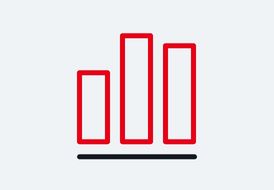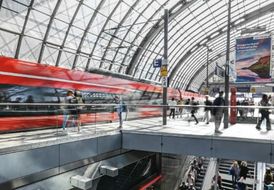Environmental measures
DB Cargo is making a significant contribution to shifting traffic to the rails, and thus to the achievement of European climate protection targets.
- The DB Cargo fleet is becoming even greener and more efficient. While energy-efficient electric locomotives already perform 94% of freight transport in Germany (based on weight-related ton kilometers; Ltkm), the sustainable drive concepts are now being expanded to shunting operations. This means that all diesel locomotives used here will be replaced by modern machines with alternative drives. Currently, 300 hybrid and dual-mode locomotives are in circulation. In the next few years, each of the around 600 diesel locomotives will be replaced.
- After extensive field trials, the biofuel HVO has been approved for the entire DB Cargo Germany diesel locomotive fleet since mid-2022. As a DBeco fuel, it extends the Eco Solutions product range. DB Cargo UK already runs part of its transport services on HVO. In 2022, DB Cargo was able to replace about 900,000 liters of diesel with HVO. Three filling stations were modified for HVO fuels, with others to follow. In future, this will also make it possible to cover the last mile in the supply chain of customers with diesel and shunting locomotives in a climate neutral manner.
- Automobile manufacturers are transporting batteries with DB Cargo on the green rail system: the state-of-the-art Automotive Logistics Center of a German automobile manufacturer is opening in Bremen for battery logistics in direct proximity to customers. It is part of the climate-neutral logistics concept for battery systems. Since 2022, DB Cargo has transported the systems over about 650 km to the assembly line in Bremen with 100% eco-power from the Stuttgart facility. The logistics hub enables DB Cargo to shunt trains right up to the production hall and unload them there.
- DB Cargo has achieved another milestone in green logistics with a global leader in steel and mining. State-of-the-art, semi-automated unloading facilities at the Eisenhüttenstadt steel plant (Brandenburg) protect the environment from fine dust and emissions in a highly efficient manner. At the same time, lighter wagons and special containers ensure even higher capacity utilization of freight trains. More than 90% of the required raw materials can be delivered in this climate-friendly manner. The raw materials used in steel production, such as ore, coke and limestone, can be handled while producing almost no dust. In the future, “green sponge iron,” an intermediate product for climate-neutral steel production, will also be transported in this way.


